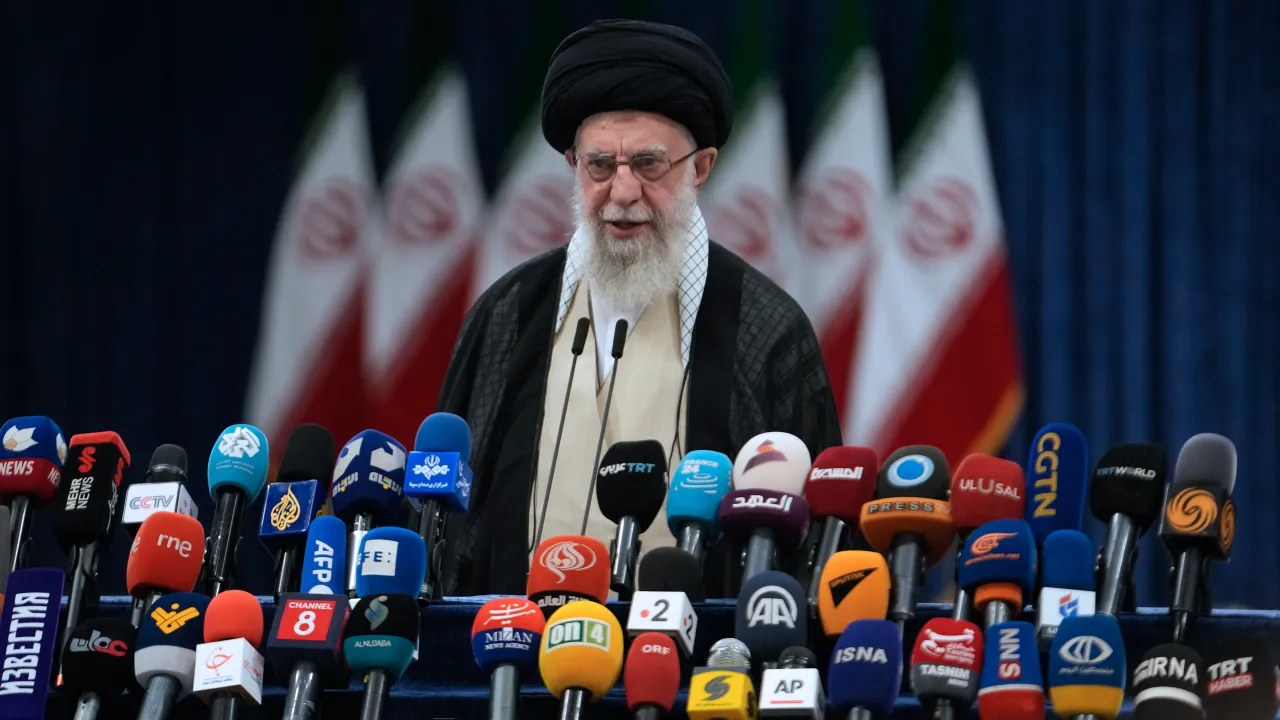On Friday, June 28, polling stations opened for Iran’s presidential election to select the successor of the late President Ebrahim Raisi following his fatal helicopter crash. While the Guardian Council approved six candidates earlier this month, two of these individuals, ultra-conservatives Alireza Zakani and Amirhossein Ghazizadeh-Hashemi, dropped out of the race prior to Friday’s vote.
Because no candidate met the 50% and one vote threshold required for electoral victory, Iran will host a runoff election between hardliner and former nuclear negotiator Saeed Jalili and reformist Masoud Pezeshkian on Friday, July 5.
Regional sources report on the election and upcoming runoff vote:
In advance of last week’s election, The National News highlighted the possibility of a low voter turnout, writing that “the limited choice of candidates, who must be approved by Iran’s Guardian Council, as well as widespread discontent over a continuing crackdown on women over the mandatory headscarf, has led to some Iranians saying they will not vote.” Iranian voters interviewed by the source cited apathy, economic woes, and failure to deliver on promises as reasons not to vote, while others maintained that “voting is a duty.”
Rudaw reported that, while Iran’s Guardian Council approved six candidates to participate in the election, two candidates dropped from the race: ultra-conservatives Alireza Zakan and Amirhossein Ghazizadeh-Hashemi. Upon his departure, Zakani urged candidates Saeed Jalili and Mohammad Bagher Ghalibaf to “‘to prevent the formation of Rouhani’s third government,’ alluding to the presence of the sole reformist candidate in the race, Massoud Pezeshkian, who is supported by former president Hassan Rouhani.”
The presidential election opened on June 28 with the Islamic Republic News Agency publicizing that “a sum of 61,452,321 voters have the right to vote in the 14th presidential election.” The final candidate list included: “Saeed Jalili, a former lead nuclear negotiator, Mohammad Baqer Qalibaf, Iranian Parliament speaker, Mostafa Pourmohammadi, former interior minister, and Masoud Pezeshkian, former health minister.”
Al Jazeera cited that “reformist Pezeskhian won the first round of the presidential race with 42.5 percent of the vote, followed by hardliner Jalili who got 38.6 percent.” Because “neither managed to get 50 percent plus one vote needed for an outright victory,” Iran will hold a second round of voting—between Pezeshkian and Jalili—on Friday, July 5. A “record low turnout” of 40 percent was reported for the first round.
Some experts, including political commentator Mohammed Reza Manafi, view Pezeshkian’s lead as “a push for ‘fundamental changes’ regarding the economy and relations with the rest of the world.” Arab News elaborated that “the reformists have urged ‘constructive relations’ with Washington and European capitals to ‘get Iran out of its isolation.’”
In practice, however, “power in Iran ultimately lies with Supreme Leader Ayatollah Ali Khamenei, so the result will not herald any major policy shift on Iran’s nuclear programme or its support for militia groups across the Middle East.” Iran’s president is responsible for
“the government day-to-day” which allows the office to “influence the tone of Iran’s policy,” The Jerusalem Post analyzed.
Anadolu Ajansi described the next steps in regards to campaigning, noting that “the two candidates were set to launch their campaign on Sunday with field events and take part in televised presidential debates and other TV programs in the coming days.” Debates between Jalili and Pezeshkian will be held July 1 and 2 with campaigning scheduled “to end 24 hours before the voting lines open.”
(Banner image: AP Photo/Vahid Salemi)
